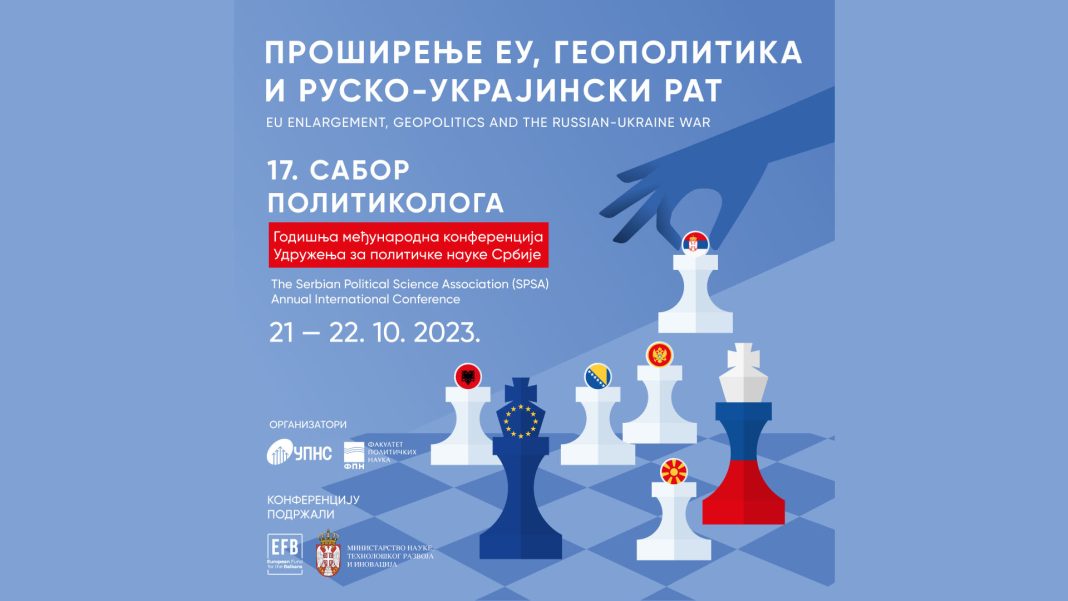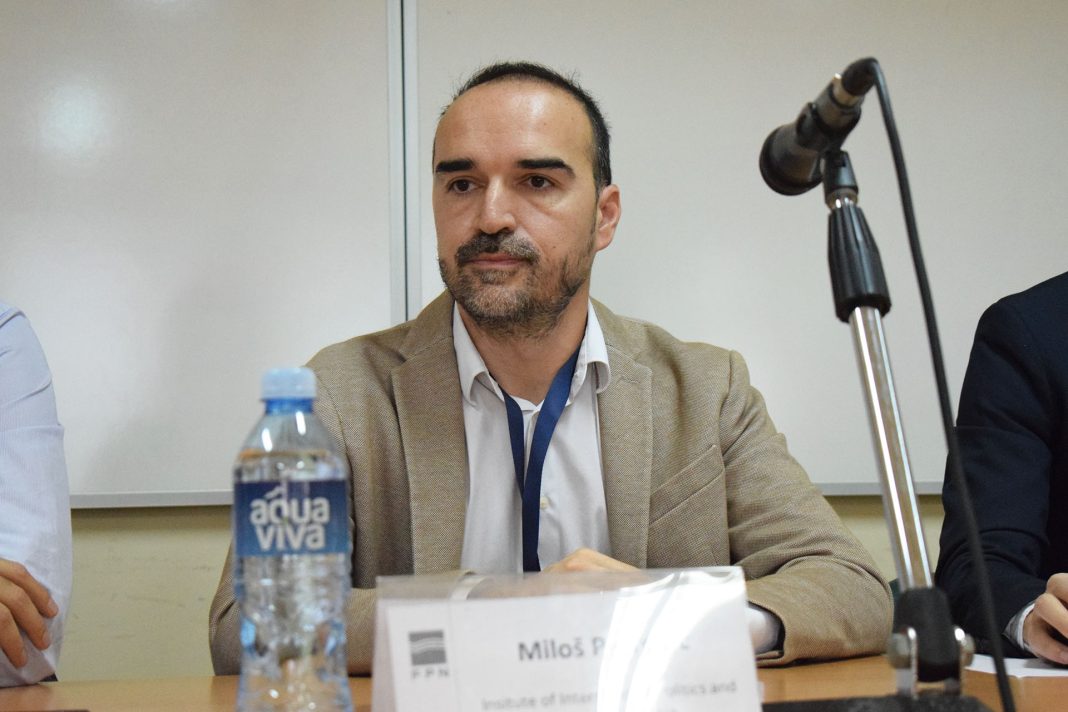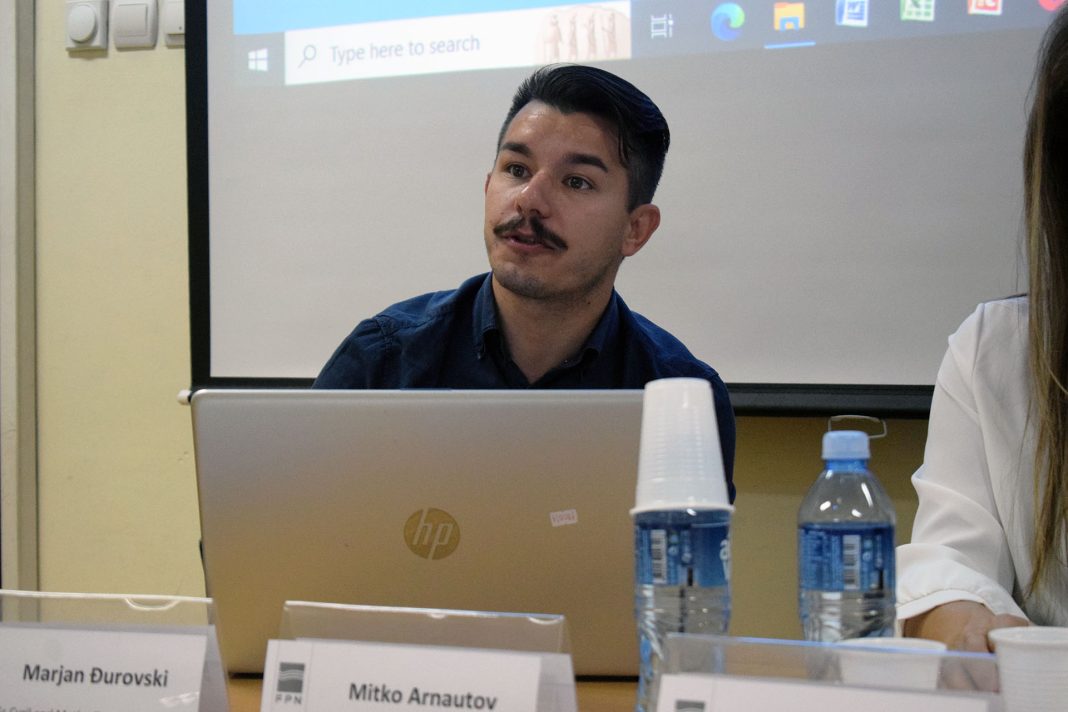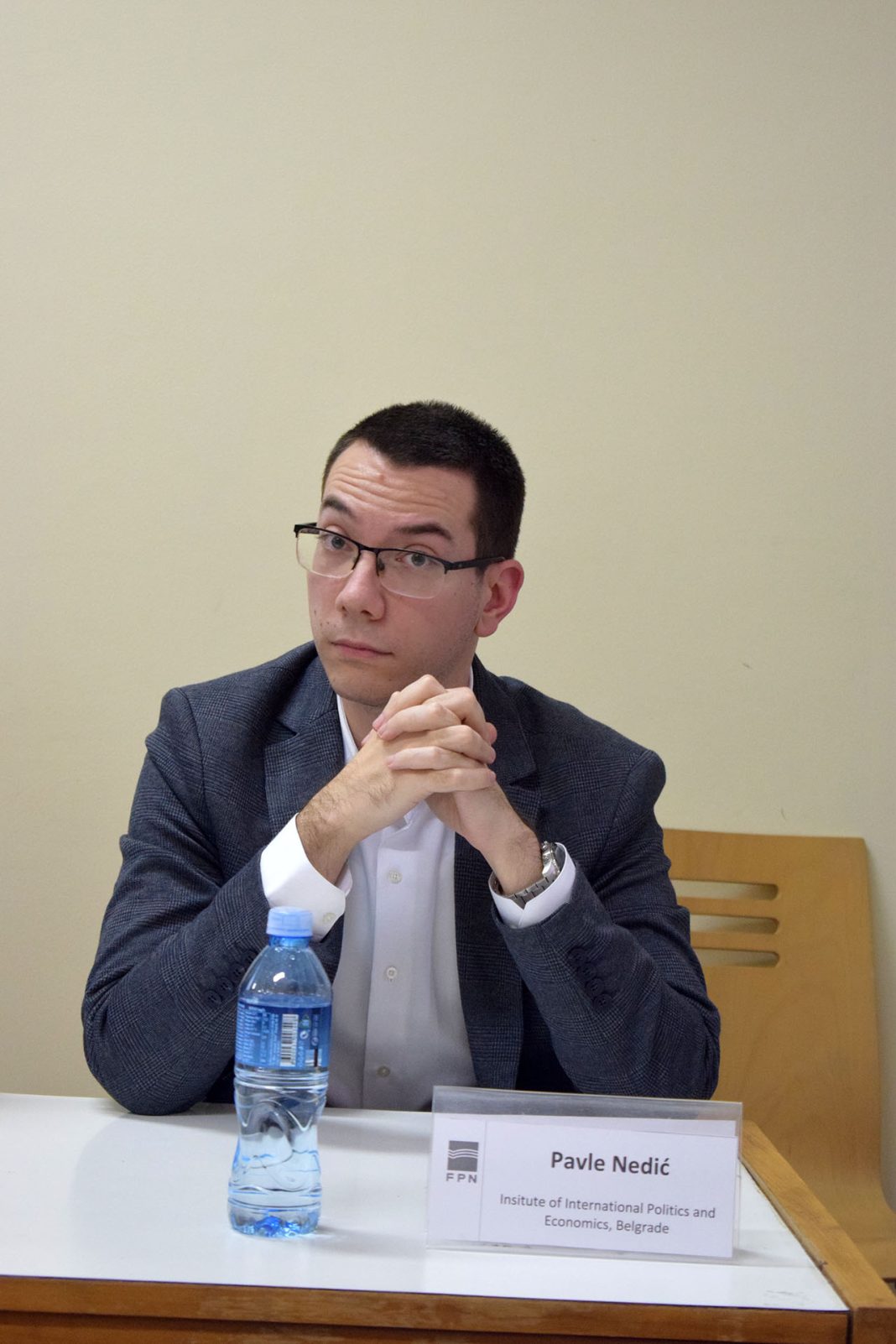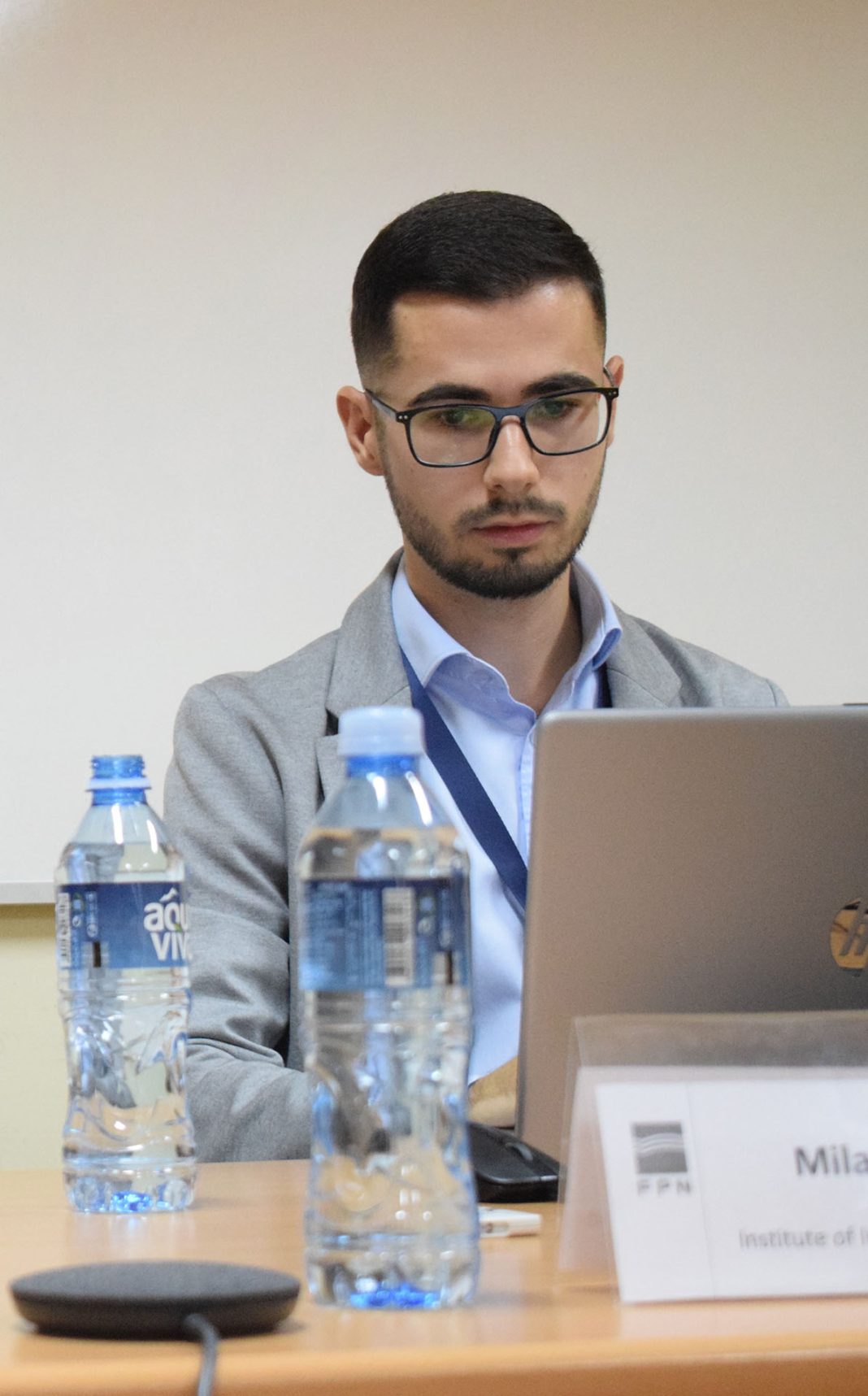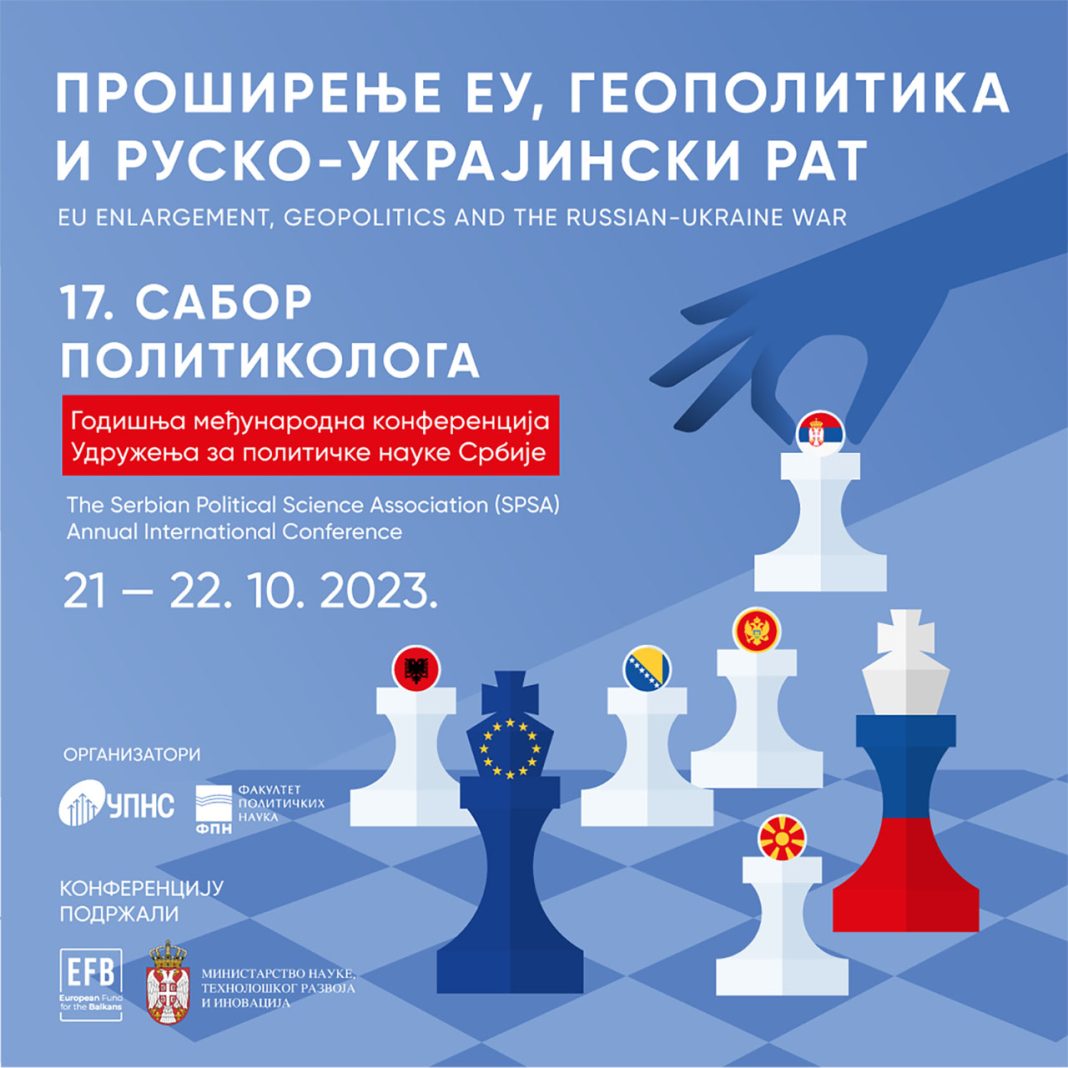Colleagues of the Institute for International Politics and Economy have participated in this year’s Congress of Political Scientists organized by the Association for Political Sciences of Serbia and held at the Faculty of Political Sciences in Belgrade.
On this occasion, Dr. Miloš Petrović, research fellow at the Center for Euro-Atlantic Studies, participated in the panel “Normative or geopolitical: the nature of the EU’s foreign policy in the Eastern Partnership and the Western Balkan regions” and presented the research “Navigating EU Enlargement: Balancing Chronological Precedence and Geopolitical Priorities”, co-authored with assistant professor Ivana Radić Milosavljević from the Faculty of Political Sciences.
Dr. Mitko Arnaudov, research fellow at the Center for the Neighborhood and the Mediterranean Countries, has participated in the panel “European Union enlargement and the Russia’s War in Ukraine”, where he presented the co-authored scientific paper “European integration of North Macedonia: a candidate-witness of the transformation of the European Union”.
MA Pavle Nedić, research assistant, presented a co-authored paper on the topic “Foreign policy goals of the Republic of Serbia – growth of the role of internal political factors in conditions of reduced “clarity” in the international system”. Pavle presented thesis that multi-polarization and the war in Ukraine contribute to the reduction of “clarity” in the international system, which leads to an increase in the influence of factors such as leaders’ perceptions and state-society relations in the formulation of Serbia’s foreign policy, especially regarding Kosovo and Metohija and European integration.
MA Milan Veselica, research assistant, participated in the first panel where he presented his work on the topic “Effect of different types of religiosity on European identity”, in which, based on empirical data, he spoke about the concrete connection between European identity and different types of religiosity among population of Europe.
Images source: Faculty of Political Sciences.


